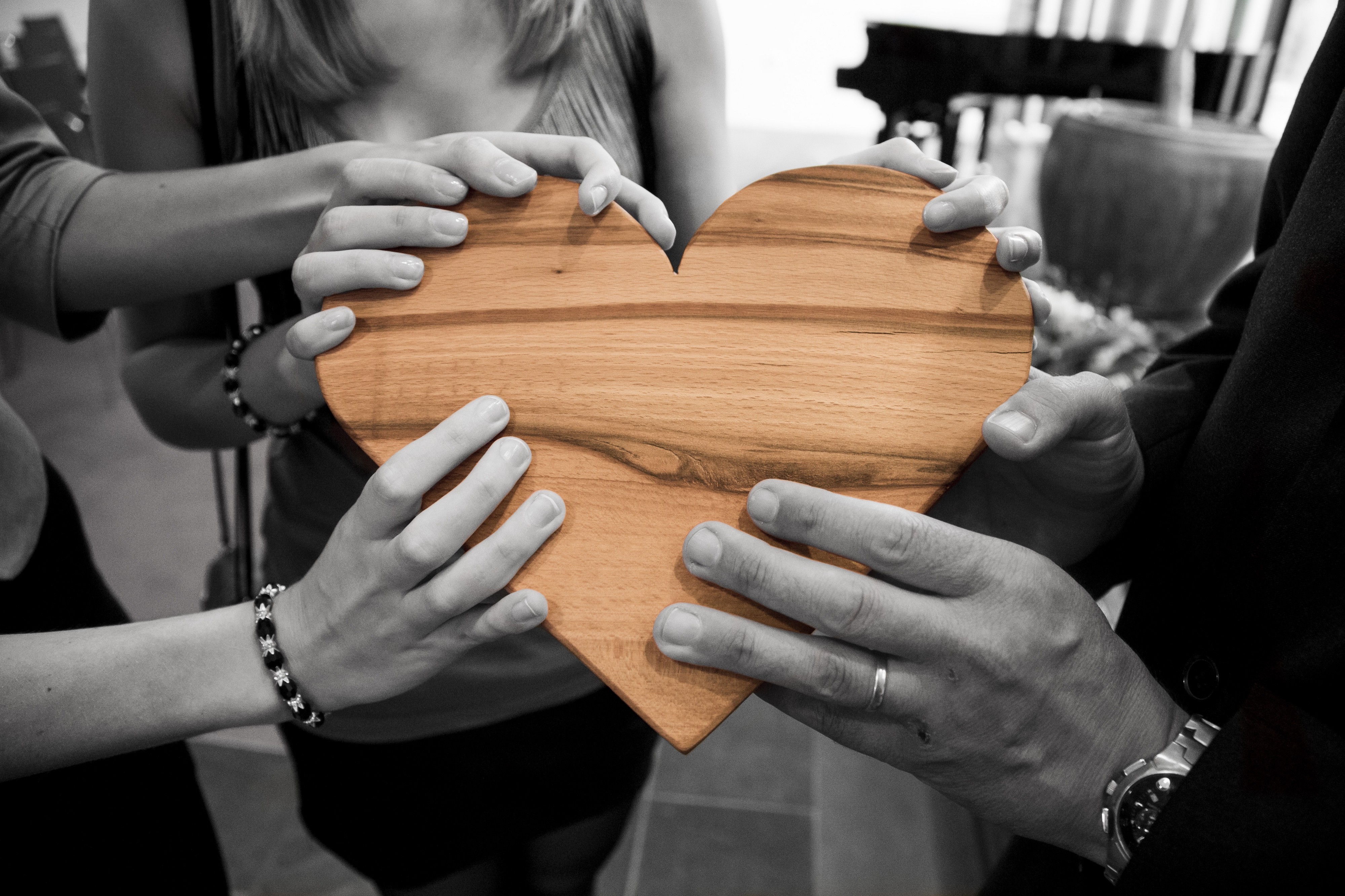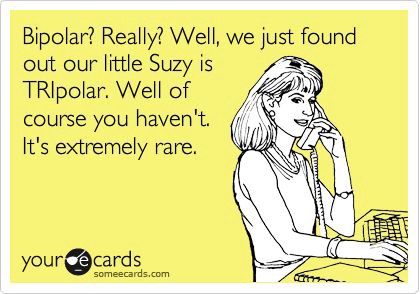Showing empathy when people are struggling is extremely important. Here?s a guide on what to say and what to avoid.

Your best friend just dropped a bombshell on you. She revealed difficult news ? maybe it?s that her husband is cheating on her or that her mother has a terminal illness.
She?s devastated.
And you are paralyzed.
Time stops for a brief moment as you frantically search for the right words to say. You want to be caring and helpful, but you don?t know how.
Ever been there?
I have.
It can be challenging to know what to do in these situations. You want to say the right thing. And yet, our well-meaning responses can sometimes backfire and make someone who is hurting feel much worse.
Why?
Because we don?t know how to show empathy.
I used to think I was good at showing empathy. That is, until my husband, Garth, and I faced cancer and infertility last year. It was through that experience that I learned a lot about what empathy looks like and what it doesn?t.
You see, when I was the one dropping the bombshell on others, I saw firsthand that most people don?t know how to empathize. Many, many times, sharing our story became a painful experience because the other person said or did something that made me feel worse instead of better.
Of course, I realize that wasn?t the other person?s intent. Most of the time, people truly just didn?t know what to say. But, when you?re in an emotionally fragile state, those insensitive comments can really hurt.
That?s why it?s important to learn how to be empathetic in these situations. And I want to share what I learned so we can all show a little more love and empathy when people choose to open up to us.
The Difference Between Sympathy and Empathy
First, what is empathy?
I used to think that you could only offer empathy if you had been through the same or similar experience as another person. While that certainly helps, that?s not what empathy is about.
Empathy = feeling WITH someone. The actual definition of the word says ?the ability to understand and share the feelings of another.?
Sympathy = feeling sorry FOR someone. The definition says ?feelings of pity and sorry for someone?s misfortune.?
Can you see the difference?
When we are struggling, we long for empathy. And yet, what we often get instead is sympathy.
After all, offering sympathy is easier. It?s easy to pity someone else?s struggles. We all do that without much effort. The harder, and better thing, is trying to understand someone else?s pain.
7 Examples of Unempathetic People
To illustrate the difference between sympathy and empathy, I want to share some examples of what empathy does not look like.
Thanks to my experiences from the past year, I?ve learned more about what empathy looks like. And over time, I began to see some patterns in the responses I received ? especially the unempathetic ones.
The following are seven types of unempathetic responses I?ve seen and experienced. If you want to be more empathetic, you might want to avoid one of these responses when someone shares something difficult with you.
1. The Dodger.
When sharing your story, The Dodger is so caught so off-guard they look like a deer in the headlights. It?s as if the topic quickly becomes a game of hot potato and they can?t get rid of it quick enough.
Their eyes dart, they change the topic, they check their phone. They will do anything to get out of the uncomfortable experience.

Here?s what that sounds like:
?Wow. Um. Yeah. That really sucks. Um, I hate to do this, but I have to run. I?ll check back in with you, okay??
Have you ever been on the receiving end of this? If not, I can tell you that it leaves you feeling like they?ve left you hanging on a cliff. Or, as if you played that trust-fall exercise and the other person quickly stepped out of the way to leave you falling flat on the floor.
Want to read this story later? Save it in Journal.
It?s defeating. It makes you feel terribly alone. And it makes you afraid to ever open up again to avoid this kind of experience.
2. The Positive Picker Upper
Some people can?t help but paint a silver lining over your pain. I believe this happens because people are so uncomfortable with hard stuff that they will do anything to talk about something more positive.
They want you to look on the bright side. They search for the positive aspects of the situation. They tell you everything happens for a reason.
It sounds like this:
?At least, you?re in a loving marriage?
?At least, the cancer is very treatable.?
?At least, you still have your job / house / friends, etc.?
These responses sound okay in theory, but instead of making you feel better, it diminishes your pain and white-washes your feeling.
This video from Brene Brown articulates it perfectly:
I?ve always been the bastion of positivity and I am terribly guilty of this one. After being on the receiving end of this response, I know now that this is not what people want to hear when they are hurting.
3. The Minimizer
In the middle of my husband?s chemo treatment last year, someone asked how things were going. At the time, we were tired, stressed, isolated and lonely.
Because this person knew about the situation, I decided to put myself out there and be honest.
?Actually, it?s really pretty shitty right now,? I replied.
The guy jumped back and his eyes became the size of saucers. He didn?t expect such an honest response.
When he didn?t say anything, I said, ?You do know about Garth, right??
?Well, yeah.? He replied. ?But, I thought he?s going to be okay.?
?He is,? I said. ?But, that doesn?t mean it isn?t hard.?
He was dumbfounded. He didn?t know what to say. So, we moved on. It was as if the fact that Garth?s outlook being positive completely diminished the fact we were going through this tough time at all.
Minimizers look for ways to make the problem smaller so they can get out of the conversation. Sometimes, it looks like the example above. Other times, they just use silence or try to tell you that the situation you?re experiencing is not so bad.
The bottom line is there is no attempt to try to connect or understand.
4. The Advisor
There?s nothing like medical difficulties to turn friends and family members into physicians and therapists. In challenging situations, people suddenly become an expert on everything. They provide numerous solutions to your issues.
Through the years, I?ve had people suggest all kinds of treatments and therapies. Some tried diagnosing my infertility, while others asked if I would consider surrogacy or adoption.
I didn?t need one more person to give me advice or solve my problems. What I needed was people to simply listen and be there for me in my pain.
Unless people ask you for advice, that?s not what they want to hear when opening up about their struggles. It seems helpful, but oftentimes, it is not.
5. The Storyteller
Sometimes, people are so eager to find ways to relate to you it?s as if they are combing through the rolodex in their brain to find a story to share.
This approach sounds harmless, but it often ends up in disaster. Because, in reality, it?s not about empathizing. It?s about finding something to say to avoid feeling uncomfortable.
It often sounds like this:
?Oh yeah, I know someone who went through something similar and here?s what happened?.?
Sometimes, the story is relevant. But most of the time, the story is not all that similar (which isn?t helpful) or it ends badly (which isn?t encouraging).
For example, people have told me about failed fertility treatments. Others have shared stories that ended in adoption. I even had someone tell me that a relative quit trying to get pregnant and 10 years later, she finally had a baby.
Can you see how none of these stories are helpful to someone who is struggling with infertility?
6. The One Upper.
No matter what happens to you, there will always, always be someone in the world who has it worse.
I know that. You know that.
And yet, when you?re going through something hard, the last thing you want to hear is how someone else?s pain competes with yours.

You lost a parent? Yeah, I don?t have either of my parents.
You have cancer? Yeah, I?ve had cancer twice.
You lost your job? Yeah, I have been out of work for a year.
By elevating their pain, it minimizes yours. This is the last thing you want to hear during a difficult time and it can drive a deep wedge between you and the other person.
7. The Dramatist.
One of the most interesting and surprising responses came when people overreacted to our news about my husband?s cancer.
We had people cry and get so upset that we ended up consoling them about the news.
Seems backwards, doesn?t it?
Yes, I realize that dropping the bombshell of the ?c-word? can be really jarring for people. But, if someone has to console you about their bad news, you might want to do a gut check. It?s completely okay to be upset. But, when you take it too far, it becomes more about you instead of the other person.
The Common Denominator in Lack of Empathy
In case you didn?t notice, there?s a common denominator in all of these responses?.
Minimizing the pain and discomfort for YOU.
I get it ? it?s incredibly difficult to listen to a friend or family member go through something difficult. You want to fix it. You want to make it go away.
But, you can?t.
Instead, the very best thing you can do is to be empathetic.
What Empathy Looks Like Instead
So, what does empathy look like? There is no one right way to be empathetic, but I believe it involves the following actions:
1. Listen.
When someone opens up to you and shares what?s going on in her life, the absolute best thing you can do is listen. JUST LISTEN.
Your job isn?t to provide a response or come up with answers. Simply let the person talk. Cry. Yell. Whatever it takes.
One time, I spent three hours at lunch with a friend who let me word vomit about how I was feeling about our infertility. Another time, I cried my eyes out on the shoulder of a loving sister.
If you find yourself in these situations, you don?t have to have answers or solutions. Just listen and be there.
2. Connect with their feelings.
They say you don?t truly know how someone feels until you?ve walked a mile in their shoes. While you can?t do that, you can definitely imagine it.
You might not have gone through the same thing as your friend or family member, but you can envision what that might be like.
How would you feel if your spouse had cancer?
How would you feel if you couldn?t have kids?
How would you feel if a family member died?
How would you feel if you lost your job?
Thinking about how you would feel or even connecting with your own struggles can allow you to more deeply feel the pain with someone.
3. Acknowledge their pain.
As Brene Brown said in the video above, ?Rarely, can a response make something better. What makes something better is connection.?
Sometimes the best response is none at all. Anything you say isn?t going to make it better.
But, what you can do is acknowledge their pain. You can let them know that you see their struggle. Here are some examples of what to say you?re not sure what that looks like:
?Wow. I don?t even know what to say.?
?That sucks! I hate you have to go through this.?
?I can?t imagine how you must feel.?
?Thanks for sharing and trusting me. I?m here for you.?
4. Show them love.
Everyone is different, so there?s not a universal response here. But, find ways to show the person some love.
Maybe that means sitting by her side while you have a Netflix marathon.
Maybe that means you mow his lawn or do his laundry.
Or, perhaps you can simply write her a note to let her know how much you care.
Don?t ask what you can do to help. Just do something.
As an example, some friends of ours insisted on bringing over dinner on a day Garth had chemo. I was perfectly capable of cooking, but it was so nice to not have to worry about a meal after an exhausting day at the hospital.
Most of the time, people going through hard things don?t know how you can be helpful. But, they deeply want to know that they are loved. So, find a way to show it.
I think we all have work to do when it comes to empathy. I know I do. I hope that by shedding light on this we can all be a little more empathetic to the people around us. I think the world would be a much happier, healthier place if we did.
What do you think? Have you experienced other types of unempathetic responses? What are other ways you can show empathy?
? Save this story in Journal.


